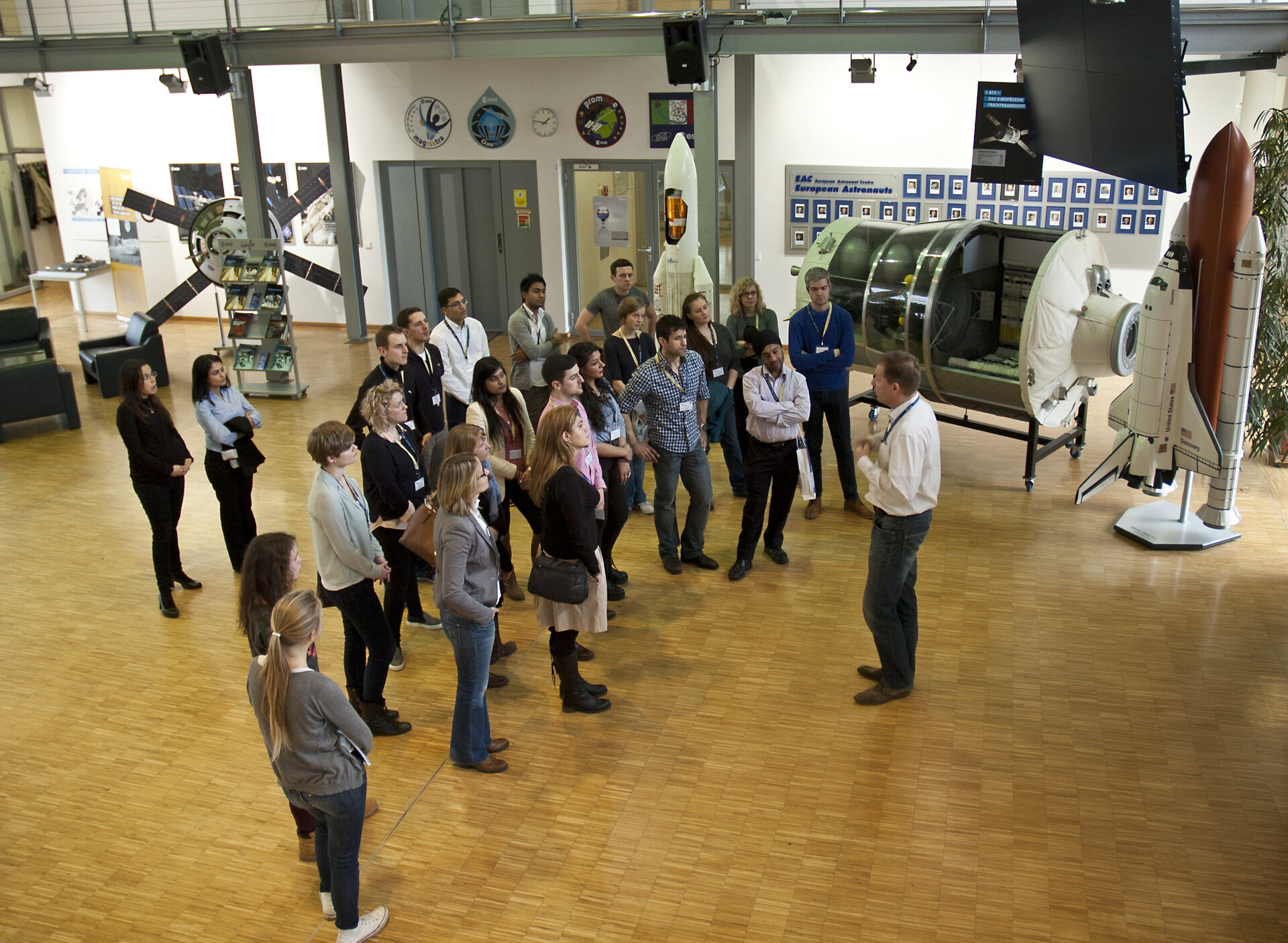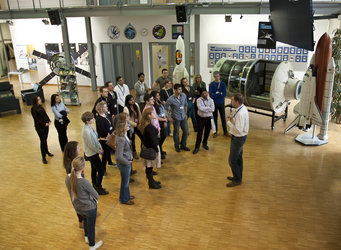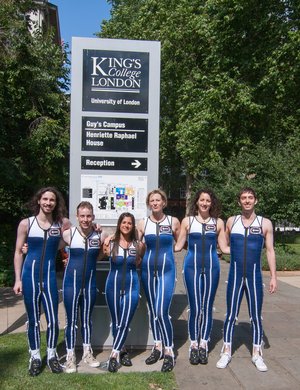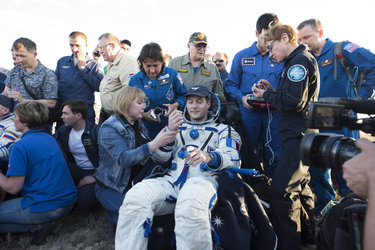Inspiring the next generation of space medicine experts
Once a year, Europe’s experts in space medicine and astronaut medical support share their knowledge with future space medicine professionals during a week-long workshop at the European Astronaut Centre in Cologne, Germany.
Last month, the European Astronaut Centre (EAC) hosted students from King’s College, DLR German Aerospace Center’s PhD SpaceLife and the Deutsche Sporthochschule Köln. They learnt from experts in space medicine, medical astronaut support, astronaut training and life sciences.

The cooperation between Europe’s knowledge centre for space medicine and the British King’s College started when Simon Evetts realised that the academic potential at King’s combined with the expertise of EAC staff in space health would make a great combination for a master’s programme.
EAC’s Head of Space Medicine, Volker Damann, was interested in the idea because he wanted to develop recognised space-medicine career paths in Europe.
King’s College proposed a one-year master’s programme in space physiology and health and the course is now held each year and includes a one-week workshop at EAC and a visit to ESA’s ESTEC technical heart in the Netherlands.
Mareike Czybulka, who works with EAC’s Space Medicine Office and is responsible for organising the workshop, underlines: “We provide the students with an insight into state-of-the-art knowledge in space medicine, so the week’s programme is a real team-effort from the entire group.”
Mareike has organised these workshops since the early days of the course and enjoys hosting the young, enthusiastic international visitors at EAC.
Students gained an insight into career opportunities in space industry and space research and were introduced to the work of flight surgeons, biomedical engineers and payload trainers.
In addition to presentations by EAC experts, the group received hands-on demonstrations of physiology experiments running on the International Space Station, were shown ESA’s medical operations console, a demonstration of assessing astronaut fitness, and an introduction to the Neutral Buoyancy Facility for spacewalk training.

One day was reserved for a tour of DLR’s Envihab building, which includes a centrifuge for human test-subjects.
On the last day, visited ESTEC for presentations by Martin Zell, Head of the Space Station Utilisation and Support, and ESA’s life-science expert, Oliver Angerer.
For the students the diverse, multicultural and international atmosphere at EAC is attractive. Hands-on interaction and hearing first-hand experiences of ESA astronauts and trainers is a good learning experience. The collaboration ensures knowledge is transferred between generations by sharing experience, expertise and education.








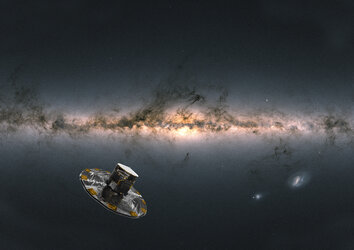






 Germany
Germany
 Austria
Austria
 Belgium
Belgium
 Denmark
Denmark
 Spain
Spain
 Estonia
Estonia
 Finland
Finland
 France
France
 Greece
Greece
 Hungary
Hungary
 Ireland
Ireland
 Italy
Italy
 Luxembourg
Luxembourg
 Norway
Norway
 The Netherlands
The Netherlands
 Poland
Poland
 Portugal
Portugal
 Czechia
Czechia
 Romania
Romania
 United Kingdom
United Kingdom
 Slovenia
Slovenia
 Sweden
Sweden
 Switzerland
Switzerland
























